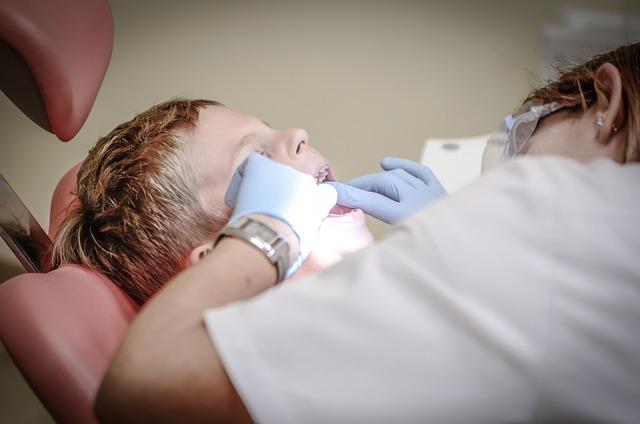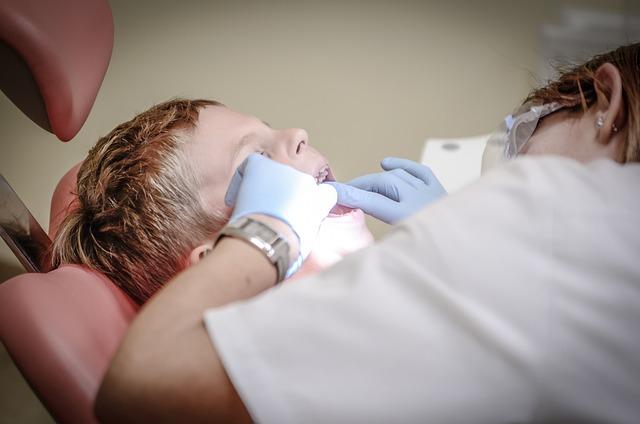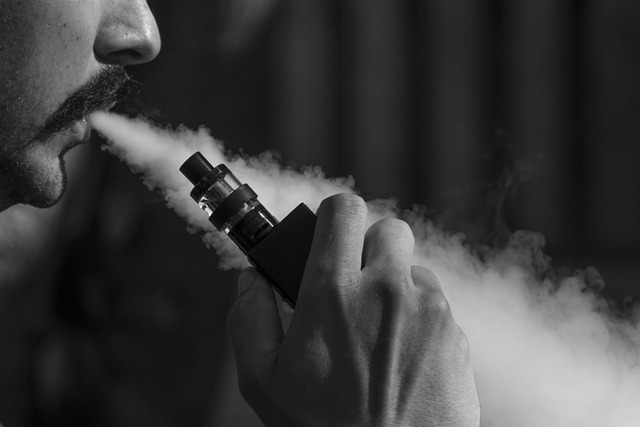Smoke and Oral Health: Uncover the Truth
Welcome to the eye-opening world of smoke and its impact on oral health. In this article, we dive deep into uncovering the truth about the connection between smoke and your precious pearly whites. Armed with confident knowledge and a neutral perspective, we aim to shed light on the effects of smoke on oral health, leaving no room for doubt or ambiguity. So, buckle up and get ready to discover the facts that will empower you to make informed decisions for your oral well-being.
1. Understanding the Link between Smoke and Oral Health: Dispelling Common Myths
When it comes to the link between smoke and oral health, there are several common myths that need to be dispelled. Understanding the truth behind these misconceptions is crucial for maintaining good oral hygiene. Let’s take a closer look at some of these myths:
Myth 1: Smoking only affects the lungs and has no impact on oral health.
This couldn’t be further from the truth. Smoking has a profound effect on oral health, leading to a range of problems such as bad breath, stained teeth, and gum disease. The chemicals present in cigarette smoke can irritate the gums, causing inflammation and increasing the risk of infection. Additionally, smoking weakens the immune system, making it harder for the body to fight off oral infections and diseases.
Myth 2: Smokeless tobacco products are a safer alternative to smoking.
Contrary to popular belief, smokeless tobacco products, such as chewing tobacco and snuff, are not a safer option. These products contain harmful chemicals that can cause oral cancer, gum disease, and tooth loss. Smokeless tobacco also increases the risk of leukoplakia, a condition that causes white patches to develop on the gums, tongue, or cheeks. It’s important to note that using smokeless tobacco is not a risk-free alternative to smoking and can still have severe consequences for oral health.

2. The Destructive Effects of Smoking on Your Teeth and Gums: A Comprehensive Overview
Smoking is not only harmful to your lungs, but it can also have devastating effects on your teeth and gums. The chemicals present in cigarettes can cause a wide range of oral health problems, leading to irreversible damage. Here is a comprehensive overview of the destructive effects of smoking on your oral health:
1. Stained teeth: Smoking tobacco products can cause yellowing and discoloration of your teeth. The nicotine and tar in cigarettes easily adhere to tooth enamel, leaving unsightly stains that are difficult to remove.
2. Bad breath: Smoking not only leaves a foul smell on your breath, but it also contributes to chronic bad breath. The tobacco smoke can linger in your mouth, throat, and lungs, resulting in persistent halitosis.
3. Gum disease: One of the most severe consequences of smoking is an increased risk of gum disease. The chemicals in cigarettes irritate the gums, causing inflammation, bleeding, and eventual infection. Smoking weakens the immune system, making it harder for the body to fight off gum infections.
4. Tooth loss: Smoking is a significant risk factor for tooth loss. As gum disease progresses, it destroys the tissues and bones supporting the teeth. This can lead to loose or shifting teeth, making extraction or tooth loss inevitable.
5. Delayed healing: Smokers often experience slower healing after dental procedures such as tooth extractions or oral surgeries. The chemicals in cigarettes restrict blood flow, impairing the body’s ability to repair and regenerate tissues.
6. Oral cancer: Perhaps the most severe consequence of smoking is the increased risk of developing oral cancer. The harmful substances in cigarettes can damage the cells in your mouth, tongue, and throat, potentially leading to life-threatening cancerous growths.
7. Reduced success of dental treatments: Smoking can negatively impact the success of various dental treatments, such as dental implants or root canal therapy. The compromised oral health caused by smoking can hinder the effectiveness and longevity of these procedures.
It is crucial to understand the destructive effects smoking has on your teeth and gums. Quitting smoking and maintaining good oral hygiene practices are essential for preventing further damage and improving your overall oral health.

3. Unveiling the Truth: How Smoking Contributes to Tooth Decay and Gum Disease
Smoking is a habit that has far-reaching consequences beyond just damaging the lungs. In fact, it plays a significant role in the development of tooth decay and gum disease. The harmful effects of smoking on oral health cannot be understated, as research has shown a direct correlation between tobacco use and these conditions.
When you smoke, the chemicals and toxins present in cigarettes weaken your immune system, making it harder for your body to fight off infections, including those that affect the gums and teeth. Additionally, smoking reduces blood flow to the gums, impeding their ability to heal and regenerate. These factors create an ideal environment for bacteria to thrive, leading to an increased risk of tooth decay and gum disease.
- Smoking stains teeth, causing discoloration and a yellowish appearance.
- It diminishes the sense of taste and smell, affecting the enjoyment of food.
- Smokers are more likely to experience bad breath, caused by the buildup of bacteria in the mouth.
Furthermore, smoking increases the likelihood of plaque and tartar buildup, which can result in gum inflammation and infection. This can progress to more severe conditions, such as periodontitis, where the gums pull away from the teeth and supporting bone structures are damaged. Ultimately, smoking not only affects the appearance of your teeth but also compromises their overall health.
- Smokers have a higher risk of tooth loss due to weakened bone structure and gum deterioration.
- Smoking slows down the healing process after dental procedures, such as tooth extraction or gum surgery.
- It significantly reduces the success rate of dental implants.
It is crucial to understand that quitting smoking can greatly improve your oral health. By eliminating this harmful habit, you give your body a chance to heal and reduce the risk of tooth decay and gum disease. Consulting with a dentist and implementing a comprehensive oral hygiene routine are also essential steps in combating the damaging effects of smoking on your teeth and gums.

4. The Hidden Consequences: Smoking and Oral Cancer – What You Need to Know
Smoking is a well-known cause of various health issues, but one of the hidden consequences that is often overlooked is its link to oral cancer. It is crucial to understand the impact smoking can have on your oral health and the increased risk it poses for developing oral cancer.
Here are some important facts you need to know about smoking and oral cancer:
- Increased risk: Smoking significantly increases the risk of developing oral cancer. In fact, smokers are six times more likely to develop this type of cancer compared to non-smokers.
- Chemical exposure: Cigarettes contain harmful chemicals that can damage the cells in your mouth and throat, increasing the chances of cancerous growth.
- Oral cavity effects: Smoking affects the entire oral cavity, including the lips, tongue, gums, and inner cheeks. The toxins in cigarette smoke can cause tissue damage and promote the growth of cancer cells.
It is essential to understand the hidden consequences of smoking and take the necessary steps to protect your oral health. Quitting smoking is the best way to reduce your risk of developing oral cancer and other smoking-related health issues. Consult with your healthcare professional for guidance and support in your journey to a smoke-free life.

5. Protecting Your Smile: Tips and Strategies for Smokers to Improve Oral Health
Smoking can have a significant impact on your oral health, but there are steps you can take to protect your smile. Here are some tips and strategies for smokers to improve their oral health:
1. Quit smoking: The best way to protect your smile and overall health is to quit smoking. If you need help, reach out to a healthcare professional or join a support group.
- 2. Practice good oral hygiene: Brush your teeth at least twice a day with a fluoride toothpaste and floss daily. This helps remove plaque and reduces the risk of gum disease and tooth decay.
- 3. Use mouthwash: Incorporate an antimicrobial mouthwash into your oral hygiene routine. This can help reduce bacteria and freshen your breath.
- 4. Stay hydrated: Smoking can cause dry mouth, which increases the risk of tooth decay. Drink plenty of water throughout the day to keep your mouth moist and promote saliva production.
- 5. Visit your dentist regularly: Regular dental check-ups and cleanings are essential for smokers. Your dentist can detect any oral health issues early on and provide appropriate treatment.
By following these tips and strategies, smokers can improve their oral health and protect their smile. Remember, it’s never too late to make positive changes for a healthier mouth!
6. Breaking Free: Quitting Smoking and Restoring Oral Health – A Journey to a Smoke-Free Smile
Quitting smoking is not an easy journey, but it is a crucial step towards restoring your oral health and achieving a beautiful, smoke-free smile. The harmful effects of smoking on oral health cannot be overstated, as it not only stains your teeth but also leads to a wide range of dental issues. However, with determination and the right support, breaking free from smoking is possible, and your oral health will thank you for it.
When you quit smoking, you give your body the chance to heal and restore its natural balance. Your oral health will significantly improve, and you’ll notice positive changes in various aspects of your smile. Here are some benefits of quitting smoking:
- Whiter teeth: Say goodbye to yellow stains and discoloration caused by tobacco. Quitting smoking will gradually restore the natural whiteness of your teeth.
- Fresher breath: Smoking causes bad breath, which can be embarrassing and unpleasant. By quitting, you’ll experience fresher breath and regain confidence in social situations.
- Reduced risk of gum disease: Smoking weakens your immune system and makes it harder for your gums to fight off infections. Quitting smoking lowers your risk of developing gum disease and prevents further damage to your oral tissues.
Breaking free from smoking is a journey that requires determination, but the rewards for your oral health are immeasurable. By quitting smoking, you not only restore your oral health but also improve your overall well-being. Take the first step today towards a smoke-free smile and enjoy the countless benefits that come with it.
7. The Power of Prevention: Promoting Oral Health Awareness to Overcome the Smoke-Related Challenges
In today’s society, the detrimental effects of smoking on overall health are widely acknowledged. However, one area that often gets overlooked is the impact smoking has on oral health. It is crucial to raise awareness about this issue and empower individuals to take preventive measures.
Here are some key points to consider when promoting oral health awareness to overcome the smoke-related challenges:
- Educate on the risks: Providing accurate information about the specific oral health risks associated with smoking is essential. This includes the increased likelihood of gum disease, tooth decay, oral cancer, and bad breath. By highlighting these risks, individuals can better understand the importance of taking action.
- Encourage regular dental check-ups: Emphasize the significance of routine dental visits for smokers. Regular check-ups allow dental professionals to monitor oral health, detect any issues early on, and provide necessary treatment. It is crucial to promote the idea that prevention is key.
- Promote smoking cessation programs: Offer resources and support for individuals who want to quit smoking. Quitting not only improves overall health but also significantly reduces the risk of oral health problems. Sharing success stories and providing information on available programs can inspire and motivate smokers to take the first step towards a smoke-free life.
By spreading awareness about the importance of oral health in relation to smoking, we can empower individuals to make informed decisions and take control of their well-being. Together, we can overcome the smoke-related challenges and promote a healthier future for everyone.
Frequently Asked Questions
Q: What impact does smoking have on oral health?
A: Smoking can have a significant negative impact on oral health. It increases the risk of gum disease, tooth decay, oral cancer, and various other oral health problems.
Q: How does smoking contribute to gum disease?
A: Smoking weakens the immune system, making it harder for the body to fight off infections, including those that affect the gums. This increases the risk of gum disease, which can lead to tooth loss if left untreated.
Q: Can smoking cause tooth decay?
A: Yes, smoking can contribute to tooth decay. The chemicals present in tobacco products can damage tooth enamel, making teeth more susceptible to decay. Additionally, smoking reduces saliva production, which is important for neutralizing acids and preventing tooth decay.
Q: Is there a connection between smoking and oral cancer?
A: Absolutely. Smoking is one of the leading causes of oral cancer. The harmful substances in tobacco smoke can damage the cells in the mouth, leading to the development of cancerous growths. Smokers are at a much higher risk of oral cancer than non-smokers.
Q: Does smoking affect the success of dental treatments?
A: Yes, smoking can negatively impact the success of dental treatments. For instance, smokers may have a slower healing process after oral surgeries or dental implants. Additionally, smoking can stain teeth, making teeth whitening procedures less effective.
Q: Can quitting smoking reverse the damage to oral health?
A: Quitting smoking can certainly improve oral health. It allows the body to heal and reduces the risk of further damage. While some effects of smoking may be irreversible, such as tooth loss, quitting can significantly reduce the risk of developing new oral health problems.
Q: Are there any oral health benefits to using smokeless tobacco products?
A: No, there are no oral health benefits associated with using smokeless tobacco products. These products still contain harmful chemicals that can cause gum disease, tooth decay, and oral cancer. They also increase the risk of other health issues, such as heart disease and stroke.
Q: How can smokers maintain better oral health?
A: Smokers can take steps to maintain better oral health by practicing good oral hygiene habits. This includes brushing twice a day, flossing daily, and visiting the dentist regularly for check-ups and cleanings. It is also crucial to quit smoking to reduce the risk of oral health complications.
Q: In conclusion, what is the overall impact of smoking on oral health?
A: Smoking has a detrimental impact on oral health, increasing the risk of gum disease, tooth decay, oral cancer, and complications with dental treatments. Quitting smoking is essential for improving oral health and reducing the risk of further damage. Regular dental care and good oral hygiene practices are also crucial for smokers to maintain better oral health.
In Summary
In conclusion, it is essential to uncover the truth about the impact of smoke on our oral health. Through this article, we have gained valuable insights into the detrimental effects that smoking and secondhand smoke can have on our teeth, gums, and overall oral health. Understanding the link between smoke and oral diseases such as gum disease, tooth decay, oral cancer, and bad breath is crucial in making informed decisions for our well-being.
The evidence presented here leaves no room for doubt: smoking is a major risk factor for various oral health issues. It not only stains our teeth and causes bad breath, but it also weakens our immune system, impairs blood flow to the gums, and hinders the healing process. Furthermore, secondhand smoke exposes non-smokers to similar risks, emphasizing the importance of creating smoke-free environments for everyone’s benefit.
Fortunately, quitting smoking can significantly improve oral health and reduce the risk of oral diseases. Taking proactive steps such as seeking professional help, joining support groups, or using nicotine replacement therapies can greatly increase the chances of successfully quitting smoking. By doing so, we not only protect our teeth and gums but also improve our overall health and well-being.
It is important to spread awareness of the harmful effects of smoking on our oral health and encourage individuals to make positive changes. By debunking myths, promoting education, and implementing effective strategies, we can empower individuals to take control of their oral health and pave the way for a smoke-free future.
Remember, our oral health is an integral part of our overall health, and by prioritizing it, we can lead a happier and healthier life. Let us take a stand against smoke and embrace a smoke-free lifestyle for the sake of our smiles and well-being.





